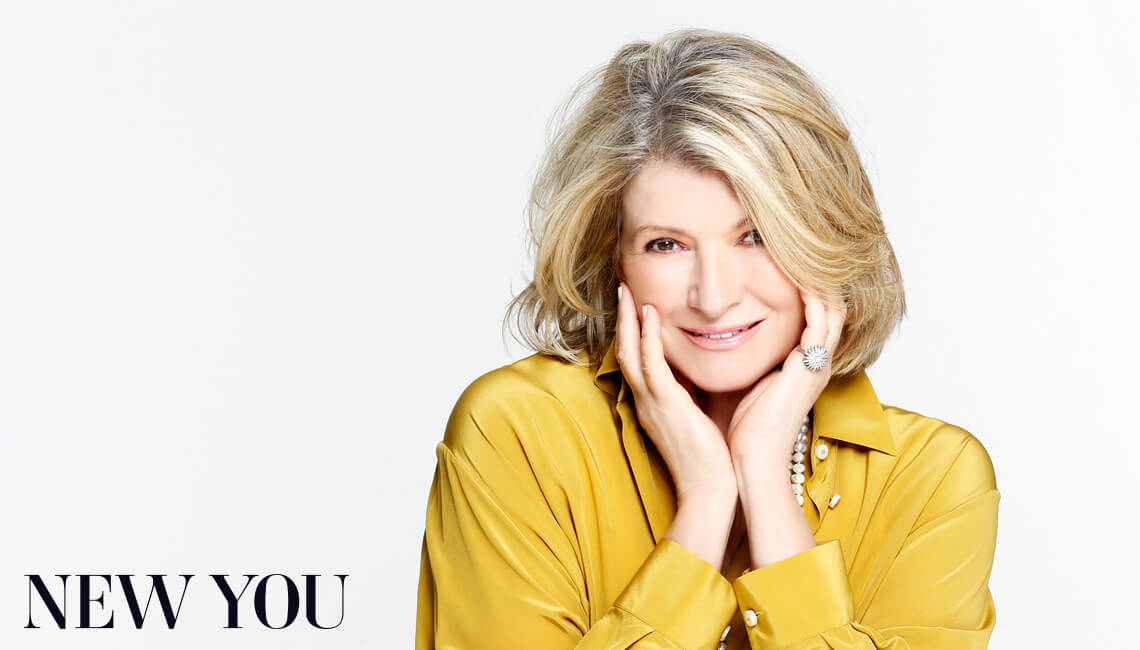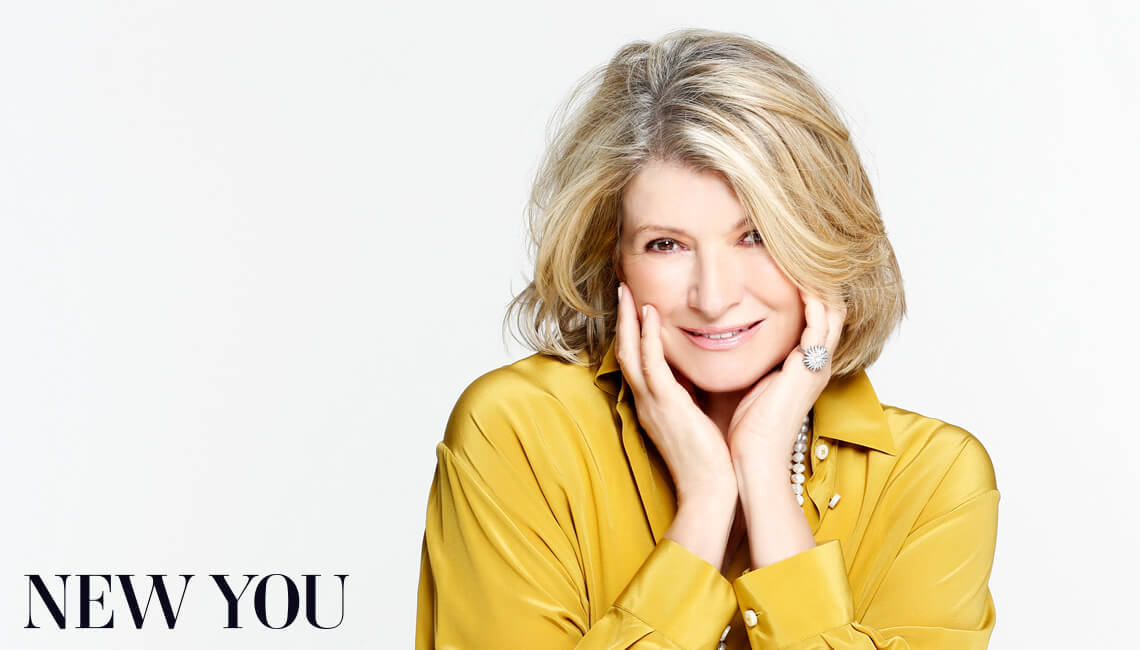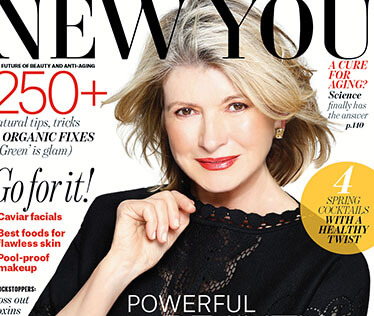

NEW YOU: You’ve just launched a new self-help guide to health and wellness, Living the Good Long Life. Why now?
MARTHA STEWART: People need help. I think people need to be reminded to take care of themselves and stimulate their brains. I’m a teacher. Make habits, good habits. It’s not fun to get up at six a.m. and meet your trainer, but it’s necessary. You just have to do it.
NY: What compelled you to write this book?
MS: I went to the Clinton Global Initiative and we had to make a pledge to help humanity. This book is my pledge.
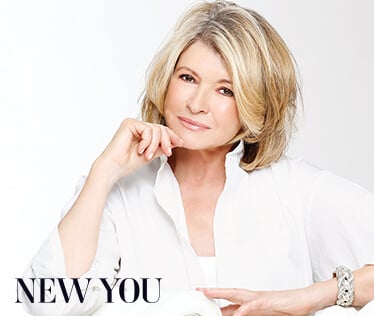

MS: Each decade has specific requirements, as I explain in my book. Starting in your forties, you start to notice crows feet and a thickening of the waist. Take, for example, the advice I received from Carolina Herrera. She was at my house one day, and we were all eating popovers, She asked if we knew that your waist should measure the same as your head, no matter your age. So, I got a tape measure and my guests and I started to measure our heads and waists. Guess who was the only one in the room that it was true of? Carolina, and she knew it. It is absolutely the truth. It’s imperative to have a good diet that keeps you healthy. Maintaining a tiny waist is a very important factor in successful aging.
NY: Is it important to think ahead about your life?
MS: In your forties, you should think about the rest of your life and how you are going to approach it. Start making plans. By your fifties, you should have a good doctor and wellness routine set up.
NY: If you had the opportunity to change just one thing in this life, what would it be?
MS: I would like to re-do the food chain in America. Factory farming is horrible. I worry a lot about it. It’s a real problem. All the nutrients are sucked out.
NY: How do you manage to live gracefully, with such enthusiasm, energy, and grace, when you have so many curve-balls thrown at you?
MS: I’ve had my share of curveballs and I’m getting pretty mad. I’ve had enough. There are many things I want to do without the distraction of curveballs. Maybe I’m going to give up baseball!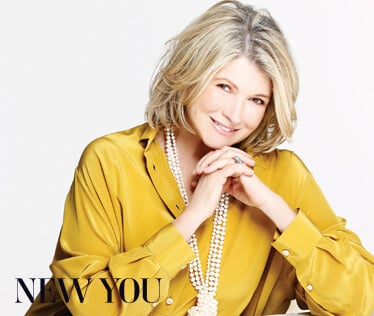

NY: You say in your book that we owe it to ourselves, and to others, to remain robust and vital as we age. Is there a lot make sure of guilt surrounding this issue?
MS: Not really, not if you start to think about it. It’s not you have a selfishness, its actually selflessness. The better you take care of yourself, the less you’re going to have to rely on wellness other people. That’s when you become selfish, when you’re starting to rely on others. You may ask the question, “Is my routine. daughter going to take care of me when I get old?” Seventy now is nothing like the seventy of twenty or forty years ago. We have a new generation. I don’t really have a name for the new generation, but I would definitely say that seventy is the new fifty. Not everyone wants to retire, and very few people really want to slow down. Diet and exercise are so important. And if you take your omega-threes, you will certainly be helping yourself.
NY: When it comes to beauty products, are there any you consider to be particularly vital? Are there any you would walk to the end of the earth to get?
MS: Unlimited amounts of very good moisturizer, with sunblock. It is very important.
NY: What are your goals for the Martha Stewart Center for Living, the new outpatient clinic devoted to the health needs of older adults at New York’s Mount Sinai Hospital?
MS: The goal of the center, which is dedicated to my mother, is to help people to live longer, healthier, and more productive lives, even as they age. Another goal is to help other hospitals develop prototypes of the Center for Living so that their communities can have access to the right kind of care. Whoever is a caregiver is also a daughter, son, or granddaughter who is working, has a job and a family, and has to give up special time. Many caregivers don’t have the proper resources to give the help they need to give and work at the same time. The center is helping to develop new tools and resources for these caregivers.
NY: Statistics show one geriatrician for every eighty-five- hundred baby boomers. Does that concern you?
MS: America has not favored geriatric medicine. It’s unsexy. “What’s the reward? You’re going to die. It’s a boring bunch of people, complaining all the time.” The trouble is, most aging people haven’t taken care of themselves and haven’t thought about it soon enough. With this giant silver tsunami fast approaching in the next two years, America will have more people over sixty-five than people under sixty-five. Geriatric medicine is the future.
NY: How important is social interaction as you age?
MS: Staying social will limit the isolation that could come in later years, as friends move away or loved ones die. In the last twenty-five years, so much has happened. Is Bill Gates the hero we thought he was? Is the Internet doing what it really was meant to do—which is save time to do other things? I don’t think so. To me, it’s a great big time waster for a lot of people, because they spend endless hours reading blogs or surfing the web. They probably should be telling their kids to brush their teeth or going for a walk, doing something interesting instead.
NY: How important is family to you?
MS: Family is extremely important. Adopted or accumulated—very, very important.
NY: Any regrets?
MS: Just that I haven’t had more children. But my daughter has two babies now, so the family is growing.
NY: What would it take to achieve the energy to start over in a new career, a new “second act?”
MS: Second acts are no fun. Rebuilding is a lot harder than building. I’ve learned that. It’s the excitement of that first success that is so phenomenal that you want to keep building on original successes. You have to approach something new as a build-on to what you’ve already done. Don’t think of it as a second act. There is only one time around the track, and you are on that track the minute you’re born.










